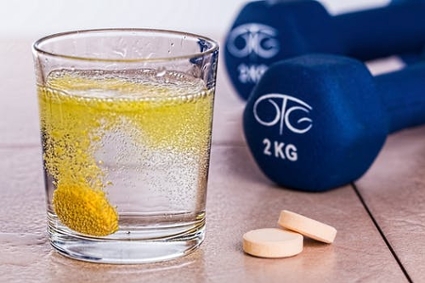I have a friend who swears by supplements. You know, the “natural supplements” and other over-the-counter pills and powders and whatnot that are supposed to make you feel better or sleep better or gain more muscle or… whatever. I’m a little skeptical; however, my friend is convinced. I’m not sure how to dissuade her from taking all these weird supplements. What can I do?
Let’s back up for a minute, and examine a premise you seem take for granted: is there anything illegitimate about supplements and natural remedies?
To get the answer, we first need to decide what we’re talking about. Based on your letter, it seems that you’re referencing pills, powders, and other forms of consumable supplements not marketed as medicines. These sorts of things are distinct from prescription medications and over-the-counter medications, because they are not allowed to be marketed as cures to ailments.
Who decides this? The Food and Drug Administration, or FDA. That’s the federal agency that is charged with regulating a huge range of consumable products, including food, medicines, and supplements of the sort you’re talking about. The FDA is stringent with medicines, but much less so with supplements–which is part of why some people don’t trust supplements.
However, that doesn’t mean that supplements go unregulated. The FDA still pays attention to what goes into these things. It can also rule ingredients unsafe. Dietary supplement makers must report issues to the FDA, which can then take action.
The supplements that stay on the market are probably not harmful. However, that doesn’t mean you can’t harm yourself by taking supplements, if you do so excessively or improperly, but we’ll talk more about that in a moment. Also, supplements should serve a purpose, which many (but not all) supplements do.
It’s easy to knock supplements, but that may not be the most sensible thing to do. “Natural” medicine may sound like new-age nonsense, but the reality is that many of our oldest and most reliable medicines began as natural remedies. Supplements may seem too good to be true and, indeed, they are sometimes marketed that way. However, they can be helpful when used as part of larger strategy. Multivitamins are sometimes criticized because they’re no substitute for a healthy diet. However, they are a wonderful tool when used in conjunction with a healthy diet. Diet pills and natural supplements, like curamed and ephedra diet pills, can help you lose weight when combined with other healthy choices.
Now, this is not to say that all supplements are useful. Some are harmless nonsense, of course, and there’s no reason to put something in your body that does no good. Experts warn that supplement fans can go too far: taking a bunch of different ones means risking strange interactions between supplements and other things you ingest, like food and medicines.
So, your friend is a fan of supplements. Is that a problem? Only if she’s taking too many at once, in which case you should tell her what we just told you about excessive supplement intake. If she’s not overindulging, though, perhaps you should just keep an open mind and let her do her thing.
“The mind and body are not separate. What affects one, affects the other.” – Dr. Joe Wellness Tips
Content Provided by Scholarship Media


